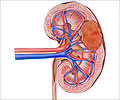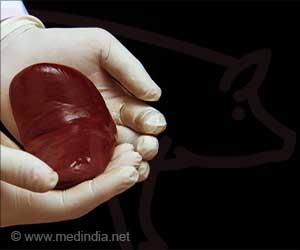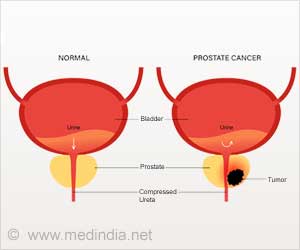Discover how belzutifan is redefining the treatment of advanced renal cell carcinoma, the most common type of kidney cancer, with its promising results.

The disease is often linked to Von Hippel-Lindau (VHL) syndrome. The loss of functional VHL protein leads to the buildup of Hypoxia-inducible factor 2α (HIF-2α), which increases tumor growth. Belzutifan targets HIF-2α, which regulates genes that promote renal cell carcinoma growth.
Traditionally, transcription factors like HIF-2α were considered "undruggable" due to their complex structure. However, researchers discovered a drug-binding pocket in HIF-2α, enabling the development of belzutifan, a small-molecule inhibitor(1✔ ✔Trusted Source
Belzutifan versus Everolimus for Advanced renal cell Carcinoma
Go to source).
‘#Belzutifan, the anti-cancer medication shows progression-free survival and delayed symptom progression in patients with advanced #renalcellcarcinoma. #kidneycancer #cancer #medindia
’





Advertisement
Common Treatment for Renal Cell Carcinoma
Anti-angiogenic and immune checkpoint therapies as first-line treatment have shown to improve outcomes in patients with advanced clear-cell renal cell carcinoma. After disease progression, treatment options include vascular endothelial growth factor (VEGF) receptor–tyrosine kinase inhibitor (VEGFR-TKI) monotherapy and lenvatinib plus everolimus.The LITESPARK-005 study marks the first randomized, phase 3 trial to successfully target a transcription factor in cancer therapy. In this study, 746 adults with stage IV clear-cell RCC, who had previously been treated with immune checkpoint inhibitors and VEGFR tyrosine kinase inhibitors, were randomized to receive either
Advertisement
Belzutifan Outperforms Everolimus in Progression Free Survival
Belzutifan significantly improved progression-free survival compared to everolimus, a common third-line treatment for advanced RCC. Over 20% of participants in the belzutifan group were alive without disease progression, compared to only 3.5% in the everolimus group.While the overall survival difference between the two treatments did not reach statistical significance, belzutifan demonstrated durable antitumor activity. The final results from the study are still pending.
Advertisement
Safety Profile of Belzutifan
The study found comparable rates of adverse events for both belzutifan and everolimus, with fewer discontinuations due to side effects for belzutifan. Common side effects included anemia and hypoxia, but these were generally manageable. Belzutifan’s safety profile was distinct, and patients experienced delayed worsening of symptoms and deterioration in quality of life, further supporting its use in advanced RCC.Belzutifan offers a new treatment option for patients with advanced RCC who have undergone multiple previous therapies. Its ability to improve progression-free survival and delay symptom progression makes it a promising addition to the therapeutic landscape for renal cell carcinoma.
Reference:
- Belzutifan versus Everolimus for Advanced renal cell Carcinoma - (https:www.nejm.org/doi/10.1056/NEJMoa2313906 )
Source-Eurekalert















